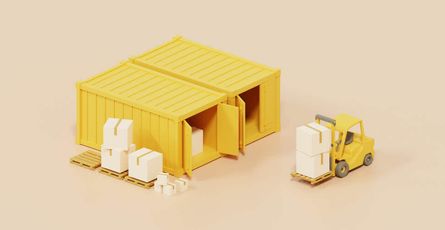Navigating the Future Career Paths in Automation Testing
-
 Eric Stanley
Eric Stanley
- October 18, 2025
Navigating the Future: Career Paths in Automation Testing
In today’s digital landscape, the demand for high-quality software is burgeoning, which in turn has accelerated the need for effective testing methodologies. Automation testing has emerged as a key player in this domain, offering efficiency, accuracy, and speed. As a result, a career in automation testing is not only lucrative but also filled with diverse opportunities. Whether you are a seasoned IT professional or just starting your journey in tech, understanding the various career paths in automation testing can help you carve out a successful niche for yourself.
1. Automation Test Engineer
The Automation Test Engineer is often the backbone of the testing team. This role involves designing and implementing automated test scripts using various testing frameworks and tools like Selenium, Appium, or JUnit. A successful Automation Test Engineer must possess strong programming skills, typically in languages such as Java, Python, or C#. They are also responsible for maintaining test environments and ensuring that automated tests are integrated into the Continuous Integration/Continuous Deployment (CI/CD) pipeline.
2. Quality Assurance (QA) Manager
For those with experience in automation testing who are looking to step into a leadership role, becoming a QA Manager could be an excellent career move. In this position, you will oversee the entire testing process, manage a team of testers, and coordinate with other departments to ensure that quality standards are met. Your responsibilities will include defining test strategies, allocating resources, and mentoring junior testers, all while keeping a keen eye on emerging technologies and methodologies.
3. Test Automation Architect
A Test Automation Architect is a senior-level position that involves designing the overall automation framework and strategy for an organization. This role requires deep technical expertise and a broad understanding of various testing tools and methodologies. Architects often lead the charge in adopting new technologies and practices, ensuring that the automation efforts align with business goals. They work closely with developers and QA teams to optimize testing processes and improve software quality.
4. DevOps Engineer
As the lines between development and operations continue to blur, a career in DevOps offers a unique opportunity to leverage automation testing skills in a broader context. DevOps Engineers work to automate the software development lifecycle, including testing, deployment, and monitoring. Familiarity with automation testing is crucial, as it helps ensure that code is tested thoroughly before it reaches production. This role requires a strong understanding of CI/CD tools such as Jenkins, GitLab, and Docker.
5. Performance Tester
Performance testing is a specialized area within automation testing that focuses on evaluating the speed, scalability, and stability of applications under load. Performance Testers use tools like JMeter, LoadRunner, or Gatling to simulate various conditions and assess how applications respond. This role requires a good understanding of software architecture and user experience, making it ideal for those who enjoy both technical challenges and user-centric analysis.
6. Automation Testing Consultant
For those looking to branch out independently, becoming an Automation Testing Consultant can be a rewarding career path. Consultants work with various organizations to assess their testing needs, recommend tools and strategies, and help implement effective automation frameworks. This role often involves a mix of technical skills, business acumen, and excellent communication abilities, as you will need to articulate complex concepts to non-technical stakeholders.
Conclusion
The field of automation testing is dynamic and ripe with opportunities. Whether you choose to specialize in a specific role or establish yourself as a versatile expert, the skills you develop in automation testing will be invaluable in the ever-evolving tech landscape. Continuous learning, adaptability, and a passion for quality will be your allies on this journey. As technology continues to advance, automation testing will remain at the forefront, ensuring that software not only meets requirements but also exceeds user expectations.
In your pursuit of a career in automation testing, remember to network, upskill, and stay informed about industry trends. The future is bright for those who are willing to embrace the changes and challenges that come with it. Happy testing!








